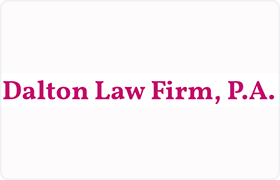Bryant Real Estate Lawyer, Florida
Sponsored Law Firm
-
 x
x

Click For More Info:
-
Dalton Law Firm, P.A.
101 NE 3rd Avenue Suite 1500 Fort Lauderdale, FL 33301» view mapReal Estate Representation You Deserve
We are here to protect your rights and lead you toward a positive solution in your legal matter.
754-218-5305
Shannon J Sagan
Real Estate, Traffic, Personal Injury, Medical Malpractice
Status: In Good Standing Licensed: 20 Years
Steven Bentley Royal
Commercial Real Estate, Estate Planning
Status: In Good Standing Licensed: 34 Years
Antonio Rafael Perez
Commercial Real Estate, Real Estate, Estate Planning
Status: In Good Standing Licensed: 28 Years
Daniel Thomas Galo
Commercial Real Estate, Criminal, Insurance, Household Mold, Real Estate
Status: In Good Standing
William Gordon Shofstall
Commercial Real Estate, Government, Estate Planning, Estate, Business
Status: In Good Standing Licensed: 44 Years
Lawrence Allan Greenberg
Commercial Real Estate, Intellectual Property, Estate Planning
Status: In Good Standing Licensed: 52 Years
Lawrence Allan Greenberg
Commercial Real Estate, Intellectual Property, Estate Planning
Status: In Good Standing Licensed: 52 Years
 Natasha Dalton Fort Lauderdale, FL
Natasha Dalton Fort Lauderdale, FL
